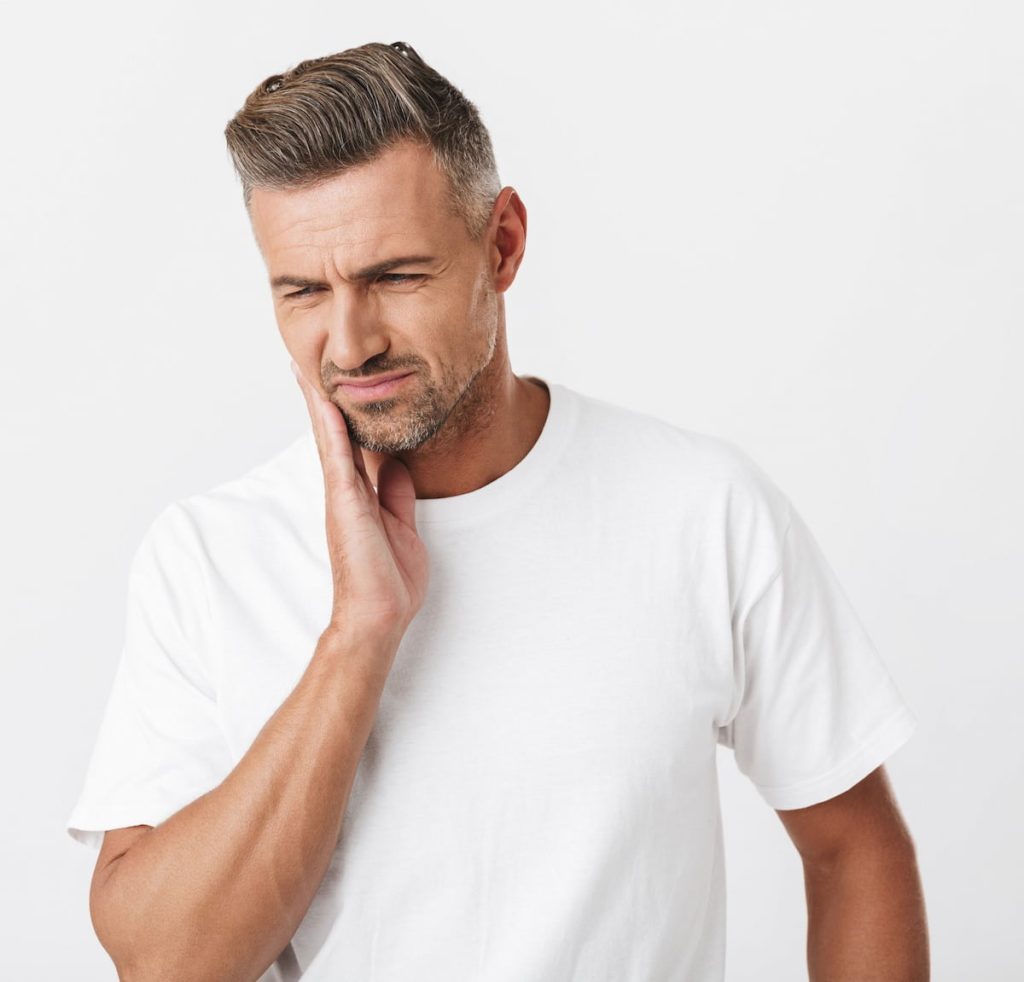If your teeth suddenly start to hurt, you’re not alone. Nearly 40% of adults in the U.S. suffer tooth pain each year.
You’re enjoying your dinner after a hard day at work, and suddenly, you feel a sharp, throbbing pain in your teeth. This isn’t the first time you’ve felt this pain, and now it’s starting to concern you. Approximately 40% of adults experience mouth pain yearly, but where does this pain come from?
Don’t ignore or mask a toothache with medication if your teeth hurt. Schedule a dental appointment right away.

7 Possible Reasons Your Teeth Hurt
- Tooth decay – A sharp, surging pain in your tooth could indicate decay. Tooth decay occurs when bacteria on your teeth produce acid that erodes your tooth’s enamel. This acid slowly eats up the enamel until it reaches the innermost layer, called the pulp. The pulp contains blood vessels and nerve fibers that become inflamed and hurt when exposed. Antibiotics and tooth filling by a licensed dentist will address tooth decay. Proper oral hygiene is the best way to prevent your teeth from decaying.
- Cracked or chipped tooth – A cracked or chipped tooth exposes the sensitive nerve fibers leading to severe pain. See your dentist the moment your tooth cracks for prompt treatment. The dentist will fill the cracked tooth or perform a root canal to relieve the pain.
- Gum infection – A gum infection occurs when bacteria infect the soft tissue around the teeth, leading to redness and inflammation. Untreated gum infections progress to periodontitis which leads to intense pain and sensitivity. Proper dental hygiene and regular checkups can help prevent gum infections and periodontitis.
- Gum recession – Gum recession occurs when the gum pulls back from the teeth, exposing the roots. The root contains pulp that’s extremely sensitive to temperature. This exposure of the roots leads to severe pain when consuming hot or cold substances.
- Brushing too hard – Brushing your teeth too hard happens when you apply too much pressure when brushing your teeth. Too much pressure wears down the enamel on your teeth and gum line. This exposes the root more, increasing your tooth sensitivity to hot and cold temperatures.
- Clenching or grinding your teeth – It’s normal to clench your teeth occasionally, but prolonged clenching and grinding could hurt them. This prolonged grinding is mainly caused by stressful or anxiety-inducing situations and mostly occurs in your sleep. The constant grinding and clenching wears down the enamel and exposes the roots, making your teeth extremely sensitive, hence the sudden pain.
- Sinus infection – Sometimes, the pain in your teeth may be related to your sinuses. Pain in the upper teeth may result from a sinus infection. This makes sense, given the proximity of the sinuses to the front teeth. If a headache and stuffy nose accompany the pain in your teeth, you likely have a sinus infection.
Call Us Today
The first two board-certified Dentist Anesthesiologists in the state of Missouri.
